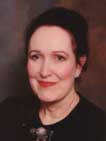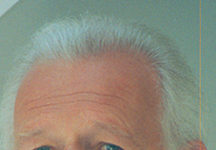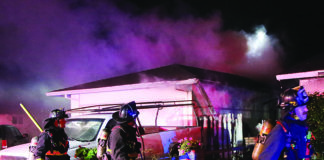By Laina Farhat-Holzman
For some years now, we have seen a transformation in university life that does not bode well. These changes are in line with changes in public behavior in our society at large, a general coarsening of language, ideas and actions.
The university world provides the next leaders, experts and supposedly informed citizenry. At UC Santa Cruz recently, Black students occupied the Administration Building until the university authorities knuckled under to their demands. That their demands were obviously bad for them did not bolster the authorities to behave as they would have in the past, “in loco parentis” (in the place of parents), or grownups. The Administration Building workers are still shaken by their intimidating “occupation.”
The students were responding to a renewal of racism on campus that we had all thought was behind us. The majority of young people in this country have shown themselves very different from their elders in their dislike of racism, sexism or religious intolerance. However, it takes only a few bigots on campus to make a statement. Nooses hung where Black students could see them; swastikas for Jewish students, and organized demonstrations against anyone invited to the university with an unpopular opinion spoil what would otherwise be the halls of learning.
In the past, American universities served the same function as that of the military: bringing together in one place youth from all parts of the country and all walks of life. The universities served as models of how these future elites should behave, should speak, and should learn critical thinking. The military did the same in introducing blue-collar youth to discipline, learning and respectful behavior. Today’s military is still doing this, producing some exceedingly impressive men and women leaders of modest backgrounds.
The universities, however, are failing in their former responsibilities. Leadership is no longer coming from professors and administrators. The students have been encouraged (or permitted) to judge their professors in social media, often anonymously trashing reputations of those who “hurt their feelings.” Specialized student organizations replace administrators in making demands about courses they want taught or scrapped or distinguished speakers they will permit or ban. The most egregious of these groups is the Muslim Students Association, funded by the Muslim Brotherhood, which organizes protests against any speakers critical of Islamic practices or providing any discussions about Israel and the Middle East. Because of Muslim objections, Brandeis University disinvited the distinguished Ayaan Hirsi Ali because she is critical of Islam. The campus feminists say nothing. They believe more in protesting Muslim “victimization” by the “colonialists” than Muslim cultural victimization of women.
The Black students who occupied the UCSC administration building demanded a special center for only Black, Caribbean and Muslim students, in effect, undoing a century of integration. They want no White students there. They also demanded that the Black Student Center be painted with the colors of Africa (whatever that means), supposedly the predominant colors of African flags. Which African country could seriously serve as a democratic model?
This sort of re-segregation is undoing one of the better purposes of the university: to bring together as roommates and housemates the diversity of America. The fruits of this former good practice can be seen in most of the educated adults serving as professionals (journalists, doctors, scientists) in every part of the country. Regardless of color, race or religion, adult professionals speak educated English, dress appropriately for each occasion, and treat each other with a common standard of courtesy. If they did not receive this training at home, they got it in college. In college, my professors regularly invited students to their homes for dinner and conversation where we learned cultivated behavior. I don’t think this is happening any more.
University students (below Graduate School) are not adults. Some come from cultured families, others do not. In integrating students, they learn from each other and should learn empathy. They should learn leadership, not by inciting a mob, but by learning how real leaders, past and present, lead. If we do not fix this, I rue the next generation of leaders. There will be no “Profiles in Courage.”
•••
Dr. Laina Farhat-Holzman is a historian, lecturer, and author of “God’s Law or Man’s Law.” You may contact her at [email protected] or www.globalthink.net. Her opinions are her own and not necessarily those of the Pajaronian.














